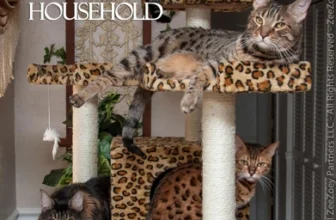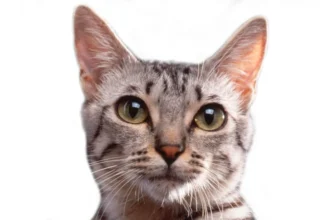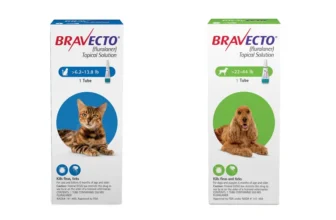As a California Spangled cat parent, you want to ensure that your feline friend stays happy and healthy for years to come. One of the most important ways to achieve this is by scheduling regular veterinary check-ups. However, if you’re unsure what to expect during a check-up, how often you should schedule them, or even how to choose the right veterinarian, don’t worry! In this comprehensive guide, we’ll explore the importance of veterinary check-ups for your California Spangled cat and provide you with all the information you need to keep your furry companion in top shape. From diagnostic tests to preventative care, we’ll cover it all to give you peace of mind and enhance your cat’s quality of life.
What to Expect at a Vet Check-Up
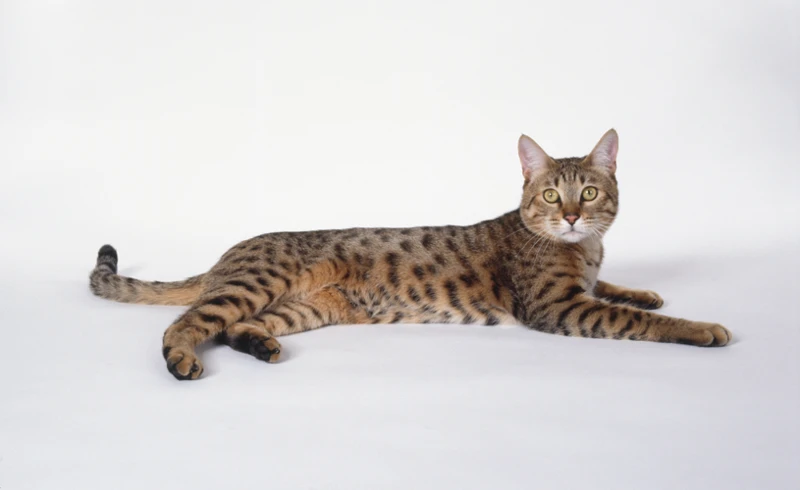
A visit to the vet can be a little nerve-wracking for both you and your California Spangled cat. However, it is an essential part of keeping your feline friend healthy. During a routine check-up, your vet will perform a thorough examination and assess your cat’s overall health. In this article, we will discuss what you can expect during a visit to the vet and why regular check-ups are important for your cat’s health. Plus, we’ll cover some preventative care tips, like dental hygiene, parasite prevention, weight management, and flea and tick prevention.
Physical Exam and Medical History
During a physical exam, your California Spangled cat’s veterinarian will conduct a thorough inspection of your cat’s body. This includes checking your cat’s ears, nose, mouth, eyes, skin, fur, and paws. The vet will carefully feel your cat’s abdomen, making sure there are no lumps or abnormalities. They may also check your cat’s heart and lungs, listen for any unusual sounds, and take your cat’s temperature.
In addition to the physical exam, the vet will review your California Spangled’s medical history to gain an understanding of any past health issues or concerns. It is important to provide accurate information about your cat’s medical history and current health status to help the vet identify any potential health problems.
The physical exam and medical history review allow the veterinarian to assess your cat’s overall health and identify any potential health concerns. This information helps the vet develop an appropriate plan for the care and treatment of your California Spangled cat.
Some of the things the vet may look for during your cat’s physical exam include:
- Signs of illness, such as lethargy or weight loss
- Lumps or bumps under the skin
- Irritated skin or rashes
- Abnormalities in the eyes, ears, or nose
- Problems with mobility, such as limping
As for the medical history review, the vet may inquire about:
- Any medications your cat is taking
- Previous surgeries or illnesses
- Changes in your cat’s behavior or habits
- Any concerns you have about your cat’s health
By conducting a thorough physical exam and reviewing your cat’s medical history, your veterinarian can gain valuable insights into your California Spangled’s health. This information is essential for developing a personalized plan for the care and treatment of your furry friend.
Diagnostic Tests
During a regular veterinary check-up for your California Spangled Cat, diagnostic tests will be done to determine the overall health of your pet. These tests can be done in-house at the clinic or sent out for further analysis. Here are some of the diagnostic tests that your cat may undergo:
- Blood tests: These tests can detect infections, diseases, organ function and glucose levels.
- Urine tests: A urine sample can detect urinary tract infections, kidney function, and diseases such as diabetes.
- Stool tests: These tests can detect parasites and bacterial infections that may cause gastrointestinal issues for your cat.
- X-rays: X-rays are used to detect any physical abnormalities in the cat’s bones and internal organs, such as tumors or blockages.
- Ultrasound: This test can further detect any abnormalities inside the body that X-rays cannot identify.
- Biopsy: A biopsy involves taking a tissue sample to identify any abnormal cells or tumors. This helps to identify the nature of the condition and whether it requires immediate treatment.
Having these diagnostic tests done during a regular check-up can help catch any potential health issues early on. This can give your California Spangled Cat a better chance at a long and healthy life.
Vaccinations and Preventative Care
Vaccinations and preventative care are important parts of your California Spangled cat’s overall health. Vaccinations help protect your cat from communicable diseases that can be life-threatening, while preventative care helps identify potential health issues before they become too advanced. Here are some of the vaccinations and preventative care measures you can expect at your cat’s regular check-up:
Vaccinations:
| Vaccine Type | Frequency |
|---|---|
| Feline Viral Rhinotracheitis (FVR) and Feline Calicivirus (FCV) | Every 1-3 years |
| Feline Panleukopenia (FPV) | Every 3 years |
| Rabies | Every 1-3 years |
| Feline Leukemia Virus (FeLV) | Every 1-2 years, depending on lifestyle |
Preventative Care:
During your cat’s check-up, the vet will also perform preventative care measures that help keep your feline friend healthy. These can include:
- Parasite Control: Your cat will typically receive a deworming treatment and a flea and tick preventative medication.
- Dental Exam: The vet will examine your cat’s teeth and gums to ensure they are healthy and give recommendations for dental care if needed.
- Nutritional Counseling: The vet can offer recommendations for a healthy diet and may provide supplements if needed.
- Behavioral Counseling: If your cat is experiencing behavioral issues such as anxiety or aggression, the vet can offer solutions and behavior modification techniques.
By keeping up with your cat’s vaccinations and preventative care, you can help ensure they remain healthy and happy for years to come.
The Benefits of Regular Vet Check-Ups
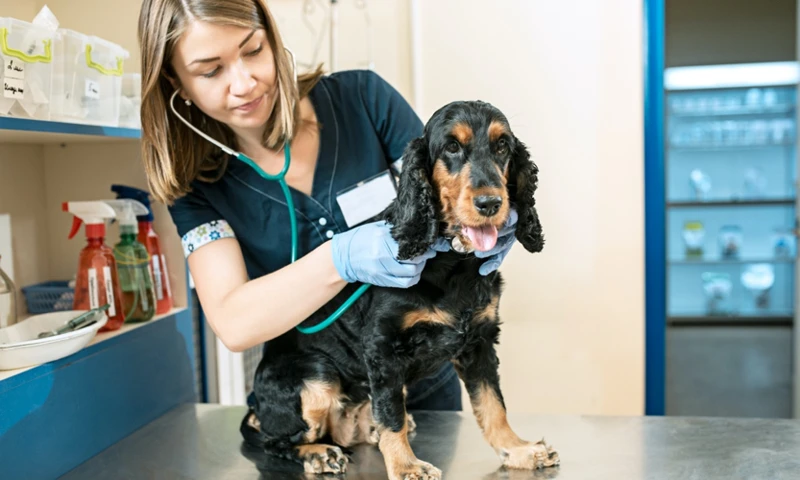
As a California Spangled cat owner, you want to ensure that your furry friend is always healthy and happy. One of the best ways to achieve this is by taking your cat for regular check-ups with a trusted veterinarian. But what are the actual benefits of these check-ups? Let’s explore the advantages of regular vet appointments for your beloved feline.
Early Detection of Health Issues
Regular veterinary check-ups can help in detecting any potential health issues in your California Spangled cat before they become serious or unmanageable. Early detection is key to successful treatment and management of many cat health problems.
During a veterinary check-up, your vet will conduct a thorough physical examination of your cat to assess their overall health. They may also review their medical history and conduct diagnostic tests to screen for any underlying health conditions. These tests may include blood tests, urine tests, and imaging tests such as x-rays or ultrasounds.
This early detection process is crucial for several reasons:
- Some health issues may not show any noticeable symptoms until they have progressed to a later stage. Regular check-ups can help detect underlying conditions that may go unnoticed or appear asymptomatic.
- Cats are notorious for hiding signs of illness. They may show minimal symptoms, making it challenging to detect when something is wrong. A veterinarian professional will be able to pick up on the subtle cues that indicate the need for further testing or treatment.
- Early detection can improve the chances of successful treatment and recovery, as many health problems are more easily managed in the earliest stages of their development.
By making regular veterinary check-ups a priority, you are taking proactive steps to ensure the well-being of your California Spangled cat. Early detection of underlying health issues can help you and your vet work together to develop a comprehensive plan to manage your cat’s health and improve their quality of life.
Improved Quality of Life
Taking your California Spangled cat to regular veterinary check-ups can significantly improve their quality of life. These check-ups allow your vet to monitor your cat’s health and prevent any potential health problems from progressing unnoticed. Regular check-ups can help ensure that your cat is in good health, comfortable, and happy, which will enhance their quality of life. Here are some of the ways that regular vet check-ups can improve your cat’s quality of life:
| Benefit | Explanation |
|---|---|
| Prevention | Regular check-ups allow your vet to detect any health problems early on, which means that appropriate treatment can be started before the condition becomes chronic or severe. This can help prevent pain and discomfort for your cat and improve their quality of life in the long term. |
| Optimal Nutrition | Veterinarians can advise you about the optimal diet and nutrition for your cat based on their individual needs. They can recommend the right food and supplements for your cat’s age, breed, and overall health, which can help improve their energy levels, digestion, and overall well-being. |
| Pain Management | Regular vet check-ups allow your vet to assess your cat’s pain level and develop a tailored plan to manage any pain that your cat is experiencing. This can help improve your cat’s comfort and mobility, as pain can be a major source of distress for cats. |
| Behavioral Problems | Vets can identify any behavioral problems that may be causing stress, anxiety, or discomfort for your cat. They can offer you advice on how to manage these problems, which can improve your cat’s quality of life and strengthen your relationship with your pet. |
Regular vet check-ups are essential for providing your California Spangled cat with the best possible care and improving their quality of life. Don’t hesitate to schedule appointments with your vet, even if your cat appears to be healthy. Prevention is key, and early detection of health issues can help maintain your cat’s good health and happiness.
Better Overall Health and Longevity
Regular check-ups with a veterinarian can lead to better overall health and increased longevity for your California Spangled cat. During these visits, the vet will examine your cat from nose to tail, ensuring that all of their major systems are functioning properly. They will discuss any potential health concerns with you and provide guidance on how to keep your cat healthy in between visits.
Here are some of the benefits of regular check-ups for your cat’s overall health and longevity:
| Benefit | Description |
|---|---|
| Early Detection of Health Issues | Regular check-ups can help catch health problems before they become serious. Early detection often leads to easier treatment and can prevent long-term complications. |
| Preventive Care | Veterinarians can provide preventive care services at check-ups, including vaccinations, flea and tick prevention, and heartworm prevention. These services can prevent the development of serious illnesses and diseases in your cat. |
| Diet and Nutrition Guidance | Veterinarians can provide guidance on diet and nutrition to ensure that your cat is receiving the proper nutrients they need for optimal health. This can help prevent obesity and other diet-related health issues. |
| Management of Chronic Conditions | If your cat has a chronic health condition, regular check-ups can help manage their symptoms and prevent complications. |
| Detecting Behavioral Issues | Veterinarians can also help detect behavioral issues in your cat, such as anxiety or aggression. This can lead to better treatment and improved behavior over time. |
By prioritizing your California Spangled cat’s regular check-ups, you can help ensure that they live a long, healthy, and happy life. Make sure to schedule appointments with a trusted veterinarian and follow their guidance to keep your cat in top shape.
When to Schedule a Vet Check-Up
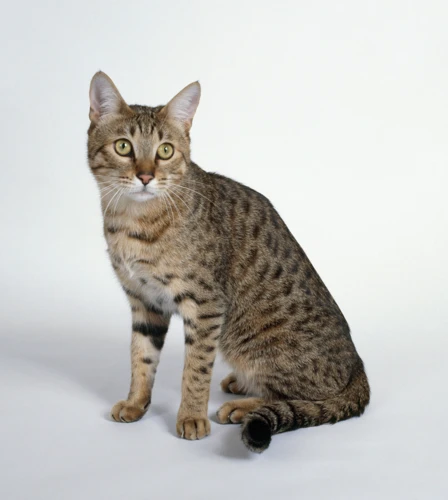
As a responsible California Spangled cat owner, you want to make sure that your furry friend is healthy and happy. And one of the best ways to do that is by scheduling regular check-ups with your veterinarian. But when is the right time to bring your cat in for a check-up? Let’s explore the different factors that can help you determine the best schedule for your cat’s health needs.
Frequency of Appointments
How often should you take your California Spangled cat to the vet for a check-up? The frequency of vet appointments will depend on your cat’s age and general health condition.
- Kittens: It’s recommended to schedule a vet appointment every three to four weeks until your kitten is 16 weeks old. During this time, your vet will make sure your kitten is growing and developing properly, administer vaccinations, and ensure your kitten is parasite-free.
- Adults: Once your cat reaches adulthood, they should have an annual check-up. During this appointment, your vet will conduct a physical exam, administer necessary vaccinations, and discuss any health concerns you may have.
- Elderly Cats: As your California Spangled cat gets older, they may require more frequent check-ups. Senior cats (over 7 years old) are prone to age-related health issues such as kidney disease, arthritis, and dental problems. It’s recommended to schedule a check-up twice a year for senior cats.
It’s important to note that the frequency of appointments may vary based on your cat’s individual needs. Your vet may recommend more or fewer appointments based on your cat’s specific health needs or pre-existing conditions. Regular check-ups can help ensure your cat is healthy and prevent more serious health issues from developing. By staying on top of your cat’s health and wellness, you can help them live a longer, happier life.
Signs Your Cat Needs to See a Vet
As a California Spangled cat owner, it’s important to be aware of the signs that indicate it’s time for a vet check-up. Cats are masters at hiding illness, so it’s crucial to be vigilant and observant of their behavior and health. Below are some signs to look out for:
| Signs Your Cat Needs to See a Vet |
|---|
| Changes in appetite or water intake: If your cat suddenly starts eating more than usual or refusing to eat, it could be a sign of an underlying health problem. Similarly, increased thirst and excessive water consumption may be a sign of diabetes or kidney disease. |
| Behavioral changes: If your cat begins acting differently, it could be an indication of a medical issue. Watch out for changes in grooming habits, changes in litter box behavior, increased aggression, or lethargy. |
| Coughing or sneezing: While occasional coughing or sneezing may not be a cause for concern, persistent coughing, wheezing, or labored breathing are all symptoms that warrant a visit to the vet. |
| Vomiting or diarrhea: While isolated incidents of vomiting or diarrhea are fairly common in cats, frequent episodes could indicate an underlying health problem such as gastrointestinal issues or allergies. |
| Abnormal discharge: Unusual discharge from your cat’s nose, eyes, ears, or genitals could indicate an underlying health issue. |
| Unexplained weight loss or gain: Sudden weight loss or gain may be a sign of an underlying health problem such as thyroid issues, diabetes, or cancer. |
| Difficulty urinating: Straining or difficulty urinating is a red flag for urinary tract infections or blockages which can be life-threatening and require immediate veterinarian attention. |
If you notice any of these symptoms or changes in your California Spangled cat’s behavior, it’s important to schedule a vet appointment as soon as possible. Regular veterinary check-ups can help detect health issues early on and prevent them from worsening.
Choosing the Right Vet for Your Cat
As a pet owner, choosing the perfect veterinarian for your furry Californian Spangled companion can be a daunting task. You need a vet who is not only knowledgeable and experienced but also caring and compassionate. Your cat’s health and wellbeing depend on the quality of care they receive, and finding the right vet is crucial. In this section of the article, we will discuss the steps you can take to choose the right vet and ensure your cat gets the best possible care.
Questions to Ask When Selecting a Vet
When selecting a vet for your California Spangled cat, it’s important to ask the right questions to ensure you’re getting the best care possible. Here are some questions to consider:
| Question | Why it’s important |
|---|---|
| What is your experience with California Spangled cats? | It’s important to make sure the vet you choose has experience with your specific breed of cat to ensure they have a good understanding of any breed-specific health issues or tendencies. |
| What services do you offer? | Make sure the vet offers a wide range of services, including routine exams, emergency care, and diagnostic testing. This will ensure that your cat can receive all the care they need in one location. |
| What are your fees? | Make sure you have a clear understanding of the fees associated with different services and procedures. This will help you avoid any unpleasant surprises when it comes time to pay your bill. |
| How do you handle emergencies? | It’s important to know what to do in case of an emergency situation, such as what to do outside of regular office hours. Knowing how the vet handles emergencies will give you peace of mind in case of an unexpected situation. |
| What is your communication policy? | Make sure the vet is easy to communicate with and provides prompt responses to your questions and concerns. You want a vet who understands and takes time to address your concerns. |
Asking these questions and getting clear answers will help you choose the right vet for your California Spangled cat and ensure they receive the best possible care. Remember, the relationship between your vet and your cat is an important one, so take the time to make the right choice.
The Importance of a Good Vet-Cat Relationship
A good rapport between your California Spangled Cat and their veterinarian can make all the difference in their overall health and well-being. Here are some reasons why a positive vet-cat relationship is essential:
- Improved comfort: A cat that feels at ease with their vet is more likely to be relaxed during check-ups, making the exam less stressful and more comfortable for both the cat and the vet.
- Better communication: When a cat trusts their vet, they are less likely to feel threatened or defensive during the exam, making it easier for the vet to thoroughly examine them and communicate any health concerns with the owner.
- Enhanced preventative care: When a cat is comfortable with their vet, the vet is more likely to be able to provide preventative care recommendations, such as dietary changes or environmental modifications, that can help prevent future health concerns.
- Easier treatment: If a cat needs medical treatment, they are more likely to respond positively if they are comfortable with their vet. For example, a cat may be more willing to take medication or undergo medical procedures if they trust and feel comfortable with the vet.
- Improved quality of life: A cat that is comfortable with their vet is more likely to receive needed medical care on a regular basis. This can improve their overall health and quality of life, leading to a happier, healthier pet.
Building a good vet-cat relationship can take time and effort, but it is well worth it in the long run. Working with a vet who is patient, gentle, and compassionate can help ensure that your California Spangled Cat receives the best possible care.
Conclusion
In conclusion, regular veterinary check-ups are essential to ensure the well-being of your California Spangled cat. By taking them to the vet on a routine basis, you can catch health issues early, improve their overall quality of life, and increase their longevity. It’s important to recognize the signs that your cat needs medical attention and to schedule appointments with a veterinarian who you trust and who has experience with feline health.
Remember that preventative care is key to keeping your cat healthy, and that means staying up-to-date on vaccinations and routine exams. By working with your vet, you can establish a good relationship that will ultimately benefit your four-legged friend. So whether your cat is a playful kitten or a wise senior, it’s never too early or too late to start prioritizing their health and well-being. Take the time to schedule regular check-ups and keep their health in check – after all, they are a beloved member of your family and deserve the very best care.
Frequently Asked Questions
What should I bring to my cat’s veterinary check-up?
You should bring a copy of your cat’s medical history, a list of any medications your cat is currently taking, and a stool sample for testing.
What diagnostic tests might my cat receive at a vet check-up?
Your cat may receive bloodwork, a urinalysis, and/or a fecal exam. Depending on your cat’s age and overall health, your vet may also recommend additional tests.
How often should I take my California Spangled cat to the vet?
Your cat should see a vet at least once a year for a routine check-up. If your cat is older or has health issues, your vet may recommend more frequent visits.
What are the signs that my California Spangled cat needs to go to the vet?
Signs that your cat may need veterinary care include changes in appetite, lethargy, vomiting, diarrhea, excessive thirst, and changes in behavior.
Can regular vet check-ups help my cat live longer?
Yes, regular vet check-ups can help ensure that your cat stays healthy and may lead to a longer lifespan.
Do California Spangled cats require any special vaccinations?
No, California Spangled cats do not require any special vaccinations beyond the basic core vaccines recommended for all cats.
What if my cat is scared or anxious at the vet?
Your vet may be able to provide medication to help calm your cat. Additionally, taking steps like using a carrier your cat is comfortable in and bringing familiar items from home can help reduce stress.
How can I find a good vet for my California Spangled cat?
Ask for recommendations from other pet owners, check reviews online, and schedule a consultation to meet with the veterinary staff before making a decision.
What questions should I ask when selecting a vet for my cat?
You may want to ask about their experience working with cats, what services they offer, and what their fees are. It’s also a good idea to find out what emergency services they offer.
Is pet insurance a good idea for regular vet check-ups?
It depends on your individual situation and the insurance plan you choose. Pet insurance can help cover the cost of unexpected issues, but may not be necessary for routine check-ups if your cat is generally healthy.





